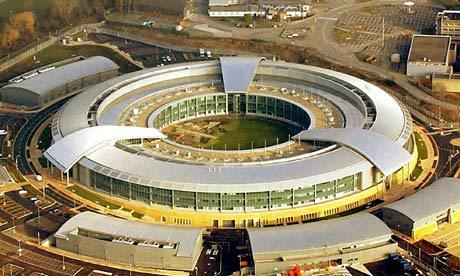The liberty versus security debate has returned to Westminster, and it’s just like old times. David Davis is having great fun beating up the government, except this time it’s a Tory-led one. And as so often, Davis has a point. Much rot is spoken in the name of ‘national security,’ which can be used by the right as ‘health and safety’ is used by the left: a verbal trump card, to win any debate and justify any policy. So it has proved with this bun fight over the snooping powers about to go through parliament. It has split the coalition, and even the Tory party. In my Telegraph column today, I try to work out what’s going on.
First, what isn’t going on: the idea that MI5 or MI6 want secret trials, or to read all our emails, is bonkers. Our spooks are famously nervy about recommending any policy: they didn’t, for example, want 90-day detention even though Tony Blair hinted otherwise. They don’t arrest or detain anyone: that’s done by the police. But what does need changing is this legal loophole, whereby a terror suspect arrested overseas with British links can sue MI6 for any information they may hold. Under the current system, the spooks have to settle — and pay out £millions — because to release the documents could expose contacts. This loophole can be fairly easily closed down by having private sessions in open trials, as works for deportation cases right now. It’s a relatively small manoeuvre.
But onto this has been bolted the idea of secret trials, to be held whenever the ‘public interest’ demands it. As the Joint Committee on Human Rights said in its report yesterday, it’s not clear who wants this — or what problems it would solve. What’s more, almost all of the government-vetted special advocates (who would be in these trials) are against it. The idea should be dropped, but we can still stop people like Binyam Mohamed suing the government with smaller reform. This ought not to be an issue.
Then comes the data. Theresa May and Ken Clarke yesterday published a joint letter saying how they weren’t having a ‘Big Brother’ database logging all emails and mobile phones. But I understand that the forthcoming Bill will force mobile phone companies to keep this data anyway, on the government’s behalf. Email companies will be forced to keep records — not of the text of the emails, but of who sent what to whom, when. This could only be accessed with authorisation (this is the same for most intercept), but is it really that different to a massive database? And you can’t really argue that it will help catch serious terrorists, who don’t send emails now. They have other ways to communicate: edit files in ‘cloud’-style shared data systems, save a draft in ‘sent messages’.
The email bank will, however, help solve crime. And this is what it’s about. If you’re after a murderer, a fraudster, a tax evader — it can help, if you can get authorsation, to see who they are emailing. The vast email bank will help to catch paedophiles, but not jihadis. To arrest child molesters and other serious criminals is not an ignoble ambition, but I think the government ought to make this case a little more clearly, rather than mutter darkly about national security.
The police are hardly taking the heat out of the subject. I’m told Bernard Hogan-Howe has sent a letter to the PM talking in ‘blood-curdling terms’ about how if new laws are not passed, then lives will be lost. It’s the police’s job to argue for more powers, and it’s the prime minister’s job to be the still, small voice of calm when things get as crazy as they now seem to have become. Ken Clarke says that lives cannot be lost in the name of ‘open government’ and David Davis says that liberties ought not to be sacrificed in a blind pursuit of national interest. Both are right. Cameron can steer a course between them, tweaking the trial law to close the Binyan Mohammed loophole. And if he wants the massive email file, keeping a log of what has been sent for the last 12 months, then he ought to make the case for it. I’m not against it, but I can’t really believe that this massive apparatus — to be tended by Google, Hotmail etc — is intended to bust terrorist cells. To suggest otherwise risks treating people like fools, as the last government had a nasty habit of doing.
The Blair years were ones where all manner of things were passed in the name of ‘national security’, and it was seen as almost unpatriotic to challenge anything done under this cause. It would be good if Britain has broken out of this phase, and is now able to debate liberty versus security calmly. I’m pretty sure Cameron is the man to do it. In the next few weeks, we’ll see.






Comments